Mother convicted of killing newborn on college campus will not be granted parole
Defendant Emile Weaver returns to the Muskingum County Court of Common Pleas for a new hearing regarding her attorney’s effectiveness during trial in 2016.
April 5, 2019
The former Muskingum University student convicted of killing her newborn nearly four years ago will not be granted the possibility of parole after Judge Mark Fleegle denied Emile Weaver’s post-conviction relief petition.
In 2016, Weaver was sentenced to life in prison without the possibility of parole after a jury found her guilty of aggravated murder, abuse of a corpse and two counts of tampering with evidence.
After being denied her appeals in June 2017 and again in February 2018, Weaver’s defense counsel finally had a breakthrough in June 2018 when the 5th District Court of Appeals reversed a decision made by common pleas judge Mark Fleegle to dismiss Weaver’s post-conviction relief petition asking the Court to reconsider Weaver’s sentence based on evidence not presented during trial.
The petition, filed by Weaver’s former State Public Defense Attorney Nikki Baszynski, claims Weaver’s trial attorney, Aaron Miller, was “ineffective for failing to present evidence concerning neonaticide in mitigation sentencing” during the time of trial.
Fleegle denied the petition on grounds that her argument did not qualify for hearing because it could have been argued during the direct appeal process.
Despite the appeals court reversal, Fleegle’s opinion did not change following two days of testimony this week.
On Tuesday, arguments began with the petitioners, led by State Public Defender Rachel Troutman, who called Diana Lynn Barnes to the stand to present what the defense believed could have been argued nearly three years ago.
Barnes is a Los Angeles-based psychotherapist specializing in women’s reproductive mental health.
Presenting new evidence
From 9 a.m. until 3 p.m., Troutman and Assistant Prosecuting Attorney Ron Welch took turns questioning Barnes, who was declared an expert on the matter.
Barnes has been practicing since 1995 and has a history of testifying on behalf of mothers who have killed their own children.
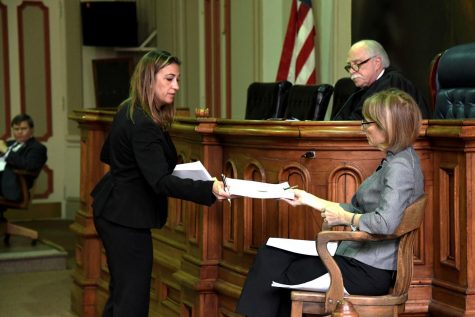
In her report submitted to the Court, Barnes argued Weaver exhibited signs of pregnancy denial which led to the act of neonaticide, or the killing of a newborn within the first 24 hours after birth.
On April 22, 2015, members of the Delta Gamma Theta Sorority at Muskingum University found the body of a baby in a trash can outside their sorority house. It would later be discovered that the defendant, Weaver, birthed her daughter alone that morning and tied the baby in a trash bag. The coroner ruled the infant died of asphyxiation.
Barnes testified that after evaluating trial and interview transcripts from the defendant’s case, as well as her medical records, Weaver displayed signs of a dissociative state, meaning she was detached from reality at times throughout her pregnancy.
During a dissociative experience, Barnes explained a person’s senses are distorted or hindered and time is altered.
While on the stand, Barnes explained the conclusions she drew about Weaver through her content analysis, as well as the supplemental information she gathered after interviewing the defendant in February 2019 and using scoring instruments to gage her level of dissociation.
On questions related to a person’s ability to suppress pain, Barnes said Weaver scored with an unusual 100 percent frequency.
“It’s astounding her capacity to minimize pain,” said Barnes.
The expert gave the example of Weaver’s injuries sustained in labor, noting deep, internal vaginal lacerations, anemia due to her loss of blood and a urinary tract infection.
Barnes said Weaver “went back to business as usual” after giving birth. After sleeping, Barnes said Weaver sat on her bed Indian-style to write a term paper, and she went to McDonald’s to eat cheeseburgers and fries with a friend.
“It’s physiologically impossible to have these types of injuries and act like nothing was happening,” said Barnes.
Further, Barnes said Weaver has the ability to compartmentalize events in her life to relieve her psychological load.
Through interviews with Weaver and her mother, Barnes determined Weaver learned such coping mechanisms during her childhood.
Barnes said Weaver grew up in a house lacking communication where everyone kept to themselves. She described Weaver’s family as critical, judgmental, rejecting and withholding of love.
According to Barnes, the relationship between Weaver’s parents was verbally and emotionally violent, and the death of her father as a milestone event in Weaver’s life that caused her a sense of abandonment.
Her stepfather was described as rigid, a man who labeled food in the house and forbid the family from sitting on the living room furniture.
Discipline in the household was authoritarian, including paddling and washing mouths out with soap. Barnes especially noted one punishment most equivocal with abandonment — the silent treatment.
Barnes argued such experiences contributed to Weaver’s pregnancy negation.
According to Barnes, Weaver was able to convince herself and others she was not pregnant, which reconfirmed Weaver’s own denial.
Barnes also alleged Weaver’s sorority sisters were convinced she wasn’t pregnant and unable to connect the dots between the “disaster zone” of a bathroom and Weaver giving birth despite the rumors going around campus.
Challenging the expert
“They didn’t connect the dots, did they,” Welch asked during the State’s cross examination. “They went and found a dead baby in a trash bag. Is that not connecting the dots?”
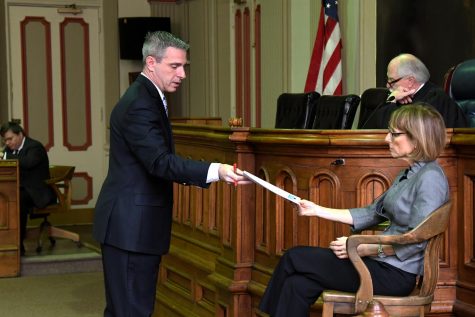
Barnes did not agree with Welch, arguing the sorority sisters in the house originally thought noises coming from the bathroom were from someone watching a video and the blood came from someone on her menstrual period.
Welch continued to pick apart Barnes’ testimony and report submitted to the Court.
Focusing on numbers, the prosecutor questioned why Barnes omitted from the report Weaver’s scores from the different tests she was given.
Barnes said the overall scores didn’t matter as much as the frequencies did, saying the individual items from the tests were indicative of dissociative experiences.
Welch then questioned why Barnes referred to the statistics as diagnostic data when the expert is not qualified to diagnose clients and the tools she was using explicitly said they were not for diagnostic use.
Additionally, Welch asked if there was a cutoff for which a person can be considered for a dissociative disorder. The answer was 30 percent. Weaver scored a 12.6 percent.
Barnes explained Weaver didn’t have a dissociative disorder, rather a dissociative experience.
Welch also noted a particular statistic used in Barnes’ report that states 1 in 475 pregnancies are concealed or denied, but another statistic was omitted which states 1 in 2,500 pregnancies are concealed or denied after 20 weeks.
Welch said there was a significant difference between those statistics.
“Why did you leave that number out,” asked Welch. “Thought it was worse for your argument? Misleading, isn’t it?”
Further, Welch questioned if there was a close association between neonaticide and pregnancy denial, why the number of infant deaths does not correlate.
“There should be more dead babies,” said Welch.
Barnes in turn explained the association is a correlation, not a causation.
Moving on from statistics, Welch began to address the language used by the expert in her report and during her testimony.
“Words mean something in your reports. I mean, numbers might not, but words do,” said Welch.
He questioned the expert’s choice of words in the report, using the term “collusion” to describe the allegation that people close to Weaver helped conceal or deny her pregnancy.
Welch argued the term infers Weaver’s friends were aware of her pregnancy and chose to ignore it, something her sorority sisters and friends would deny through future testimony.
Barnes responded by saying collusion has a different meaning in the field of psychology.
Further, she emphasized the sorority sisters didn’t cause the baby’s death.
“I’m not holding them at fault, nor am I blaming them for any failure to take action,” said Barnes.
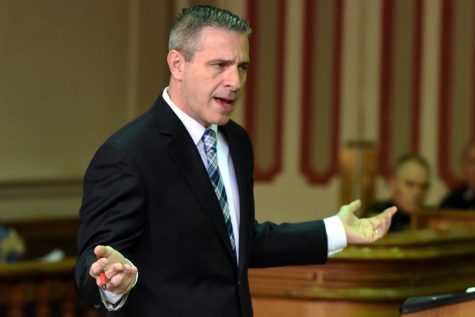
Addressing other word choices, Welch asked Barnes why she bounced between saying Weaver’s pregnancy was denied and concealed.
Barnes said the words are interchangeable with pregnancy negation.
“That’s a weasel word,” said Welch, referring to “negate.”
Welch pressed Barnes into making a choice, whether the pregnancy was concealed or denied, saying a person must consciously be aware what they are denying.
Barnes said she was unable to choose just one word, again saying they are interchangeable and only significantly different when isolated.
Continuing to question Weaver’s pregnancy negation, Welch questioned how Weaver had the consciousness to clean the bathroom after giving birth.
Barnes offered the decision to clean the scene was a fight or flight reaction in panic, even in a dissociated state.
Welch then asked why Weaver told detectives she stopped having a period in October and scheduled an abortion in November if she didn’t believe she was pregnant.
“If you’re considering abortion, are you past denial stage,” asked Welch.
“No,” replied Barnes.
The expert explained a person’s consciousness can fluctuate in a dissociative state.
Barnes said the thoughts of abortion occurred when Weaver was aware of her pregnancy.
Welch approached Barnes with a bottle of black cohosh pills, known to cause miscarriages, and asked why Weaver was taking them up until the delivery if she knew she was pregnant.
Further, Welch showed the expert text messages Weaver sent the suspected father after the baby died.
Welch said the words “no more baby” were a 100 percent indicator Weaver was well aware she had a baby.
During her trial, Welch said Weaver acknowledged there was a baby 11 times.
Barnes argued Weaver didn’t recognize her daughter as a baby instead of an “it” until she was picking out her funeral clothes. She said Weaver’s perception of reality was distorted during delivery, explaining how Weaver described the baby as a four-inch mass of tissue in the toilet.
Welch also questioned the expert’s integrity, asking if she had ever testified on behalf of the State and not just the defense.
Barnes said she had never been asked by the State to testify.
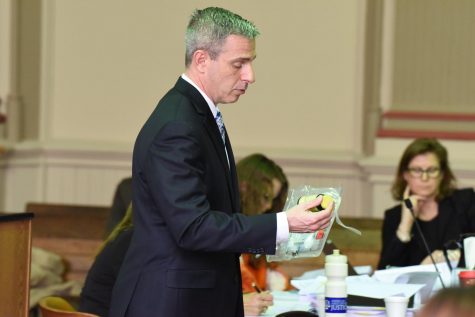
Welch brought up an article Barnes wrote about Andrea Yates, a mother who drowned her five children to death, including her seven year-old son who ran away to escape but was dragged back to the bathtub and killed. In the article, Barnes wrote “Women are mad as hell, and they’re not going to take it anymore.”
“You identify and feel sympathy for people who’ve murdered their children, correct,” Welch asked Barnes.
“Can sympathy interfere with professional judgement,” asked Welch.
“It could,” answered Barnes.
Denying the findings
On Wednesday, testimony continued with witnesses from the State.
Welch called to the stand six of Weaver’s classmates from Muskingum University — five sorority sisters and one male friend.
Each sorority sister to testify denied Weaver’s allegations that sorority house environment was harsh, caddy and judgmental.
“Why would I still hang out with people if they were like that,” said one sister.
The sorority members described a tight bond between sisters. They would go to dinner together every night at 5 p.m., they’d attend football and basketball games together and they’d enjoy social events together.
“Still to this day these are the closest friends I have,” said one sister.
Each sorority member in the courtroom said Weaver was never excluded from activities, one said she would even help plan sorority functions.
“She was popular. She was pretty. She liked to go out,” said a sister.
Even after rumors began that Weaver was pregnant, her friends said they still included her.
Several sorority members recalled another sister who joined with a young son. Each said that woman was included in activities, as well as her son.
“We loved her, so we loved him,” said a sister.
The same sorority member added that the boy was allowed to wear the sorority’s letters, which is a significant privilege.
So when suspicions that Weaver may be pregnant arose, the sister said Weaver would have been treated “exactly the same way” as the other mother in the sorority.
“I went out of my way to ask her on two separate occasions [if she was pregnant],” one sister said. “I didn’t want to exclude her because I felt she needed support at that time.”
Each witness denied supporting Weaver’s pregnancy negation. Several others explained their attempts to confront Weaver about the pregnancy rumor, and each time, Weaver denied it.
“I told her I loved her, and I asked her and she denied it,” said Weaver’s former roommate and close friend. “You can’t force it out of them to tell you.”
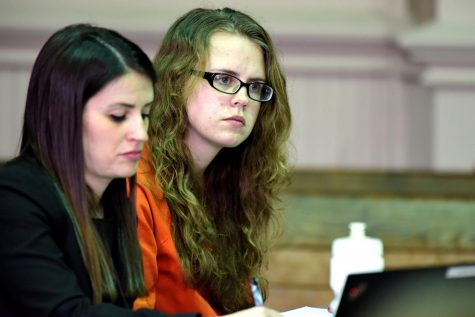
Another sister said Weaver played it off as a rumor started by another campus sorority out of dislike for Weaver.
A man who considered Weaver his sister in college said he was aware of the rumors and tried asking Weaver about it a week before the baby was born.
He said she denied it, and that was it. The friend was unsure how to act after her denial, but remained close friends with Weaver even after the baby died.
Others friends did the same until the evidence that Weaver killed her daughter became too strong.
Even after she gave birth, the sisters still did things to help her. They returned her clothes to her after she was kicked off campus and wrote letters to her.
“If we can support you after you murdered somebody, why wouldn’t we support you for having a baby,” said one sister.
The five sorority members who testified Wednesday described the impact Weaver’s case has had on them. Several admitted to being diagnosed with PTSD, depression and anxiety after the baby’s body was found.
One woman said she became reliant on alcohol to cope and took two years to recover.
Another said she had trouble getting out of bed to attend class, and her grades suffered from it.
One sister in particular who works at a daycare said she is reminded of the event daily.
After learning Weaver would have a new hearing, she recalls looking a baby in the eye while feeding it at work and thinking about how someone could kill an infant.
“I just can’t imagine,” the woman said.
During closing arguments, the defense counsel highlighted the words of the daycare worker.
“None of us can sit here and imagine killing a baby,” said Troutman. “That’s why it’s a clinical syndrome being studied.”
Troutman argued Weaver was able to fool herself into thinking she wasn’t pregnant, adding Weaver believed her daughter was an “it.”
“Emile has the extraordinary ability to act in the state of denial,” said Troutman.
Troutman argued life without parole was not an appropriate sentence and said Weaver wasn’t an evil person who went into the bathroom to kill the baby.
The prosecution asked the judge to dismiss the testimony provided by expert witness Barnes on the grounds that she testified as an advocate for Weaver rather than as an expert.
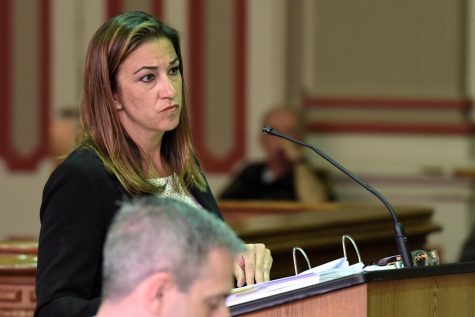
Prior to Welch’s motion, Fleegle had asked the expert the previous day if it was possible Weaver had learned new information before speaking with Barnes. Fleegle said the story Weaver gave the Court prior to her sentencing didn’t match what she was saying afterward.
The final decision
Following closing arguments, Fleegle proceeded immediately with his ruling.
“I find the testimony of Dr. Barnes to be the most unusual testimony that I have ever heard in my 40 years from an expert,” said Fleegle.
The judge echoed the State, saying Barnes was “purposefully deceiving to the Court” for failing to provide numbers and using improper language.
Fleegle said the expert changed things as she went along and made excuses when questioned by the prosecutor.
“This was an individual who came in to advocate,” said Fleegle.
For those reasons, Fleegle said he would not accept Barnes’ testimony.
“I find it unbelievable and biased,” said Fleegle.
Fleegle ruled Weaver’s trial attorney was not inefficient and did the best he could to argue the causes of neonaticide.
“You can’t get any younger than the victim in this case,” said Fleegle.
The judge also said Weaver couldn’t have tried to kill her baby as many times as she did.
“The Court will deny the petition,” said Fleegle.
Weaver’s sentence of life in prison without the possibility of parole was upheld.
After the hearing, Welch said he agreed with the Court’s decision to reimpose Weaver’s sentence.
“The State believes that this issue was addressed at sentencing, and that this hearing should never have happened,” said Welch. “However, now that it’s happened, we feel it is abundantly clear that there is no information to support Emile Weaver was in any way affected by a disorder or an illness.”
Welch said the expert who testified was not qualified due to her misrepresentations of fact and her own personal bias.
“We believe that we’ve established that not only has she not met the scientific criteria for an expert, but that she has a bias that can’t be overcome and she is acting as an advocate, not as an expert,” said Welch.
Welch described Barnes as being unable to change her mind once it’s made up that a mother killed her child due to mental illness.
“She is an individual who is biased by her predisposition to conclude that when there is the death of a newborn or the death of a child at the hands of a woman who is in any stage of pregnancy up to a year after childbirth, she would say that that person is not responsible for their actions,” said Welch.
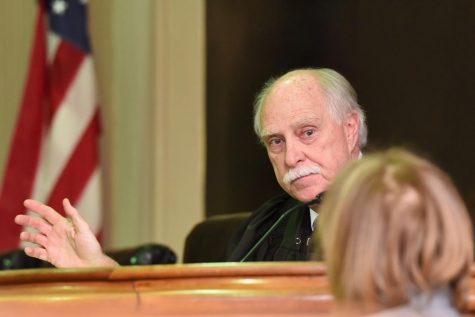
Referring to the case of Andrea Yates, Welch said Barnes empathizes with mothers who kill their children.
“The fact that this expert issued a rallying cry around her is evidence of just how biased she is, and you’re talking about a woman that drowned a six-month-old, three other children, and when she was caught in the act by her seven-year-old, chased him through the house and dragged him back to the bathtub to drown him, yet the expert said that ‘there is a vast amount of compassion for Andrea Yates. She’s a victim of a culture that says women come last,’” said Welch.
Defense attorney Troutman declined an interview but issued a statement via email after the hearing concluded.
“Before the crime, Emile was a good girl, honor student, never causing controversy. She had an extraordinary ability to live in a state of denial, and it affected her maternal mental health at the time she delivered the baby. That is what the crux of the issue is, and Emile does not deserve to spend the rest of her life in prison for actions she committed in a dissociated fog,” wrote Troutman.
Weaver will continue her prison term as previously sentenced. She was most recently being housed in the Dayton Correctional Institution.

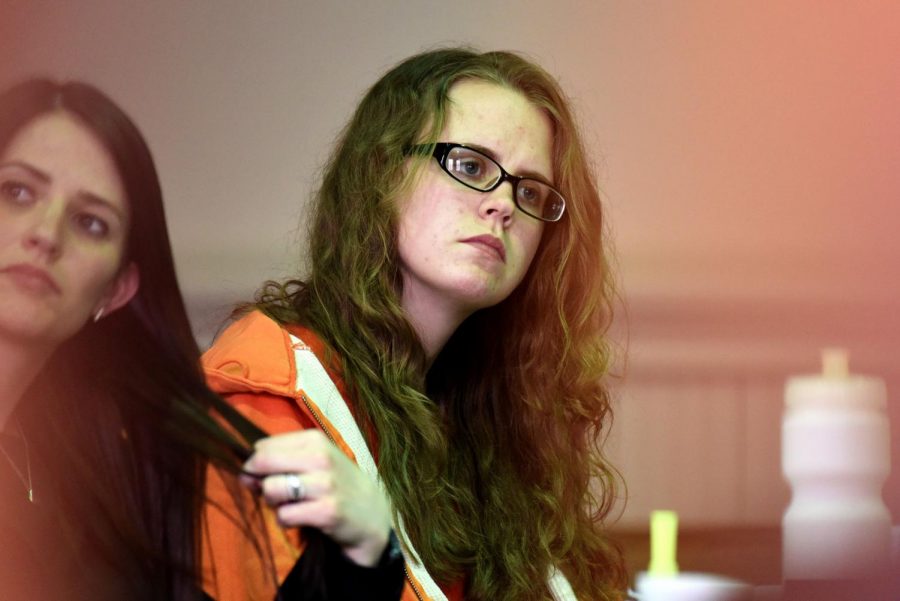












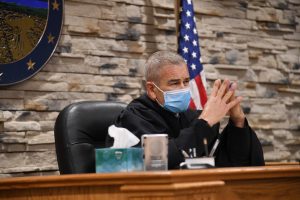
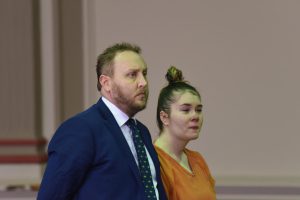
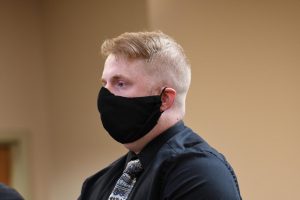
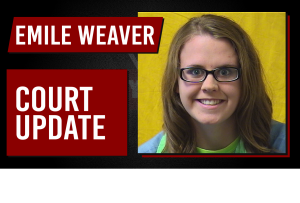
Sam • Jun 3, 2020 at 12:00 am
You know what absolutely breaks my heart – that Elle article. It was written in 2018 before Emile’s recent 2019 hearing where her sentence was upheld. The part where Emile says “I still have hope” is so so heartbreaking. The so-called justice system is all over the place. Yes she killed her baby. But so did the others that got way way lighter sentences.
Life without parole is so wrong. I really hope she fights this. So heartbreaking. I am lost for words.
Kiara • Jan 26, 2020 at 11:09 am
The point of incarceration is to rehabilitate an inmate. Emile wasn’t even fully grown herself at this point – your brain is still developing at 19 or 20, despite being legally an adult (this is a scientific fact).
She has shown sincere remorse and has a whole life that she could use giving back to society, making amends with volunteer work, and paying taxes. This woman should be free in her 30s. Rotting away in jail for life costing taxpayers millions won’t bring back that beautiful baby. Two wrongs don’t make a right.
Kathippy • Jan 20, 2020 at 2:24 pm
Cruel an unjust. Agree with Regina – the sentences are ALL OVER THE MAP. Life maybe – without parole???? Unbelievable.
https://www.elle.com/life-love/a29998766/neonaticide-emile-weaver-sorority/?source=nl&utm_source=nl_elm&utm_medium=email&date=011920&utm_campaign=nl19173858
read last pgh..
The day after our interview, the local news reported on the case of a high school senior in a nearby county who gave birth two days after prom to a baby she said was stillborn. In September, the jury found her not guilty of aggravated murder, involuntary manslaughter, and child endangerment. She was found guilty of gross abuse of a corpse, and the judge sentenced her to seven days in jail (which she’d already served) and three years’ probation. She’d buried the baby in her parents’ backyard.
Regina Susek • Jan 16, 2020 at 4:31 pm
Unbelievable that sentences are all over the lot. There was a girl and her boyfriend from Franklin Lakes NJ. The went to Newark, Delaware, delivered the baby, killed it and dumped it into a dumpster. He went to jail and she got off , I think with probation. Another delivered her baby during the prom in NJ and got off scot free.
Rusty • May 4, 2019 at 7:48 pm
It’s crazy,when another girl at the same school did the same thing,got three years and only served seven months. Emile should have gotten the same thing.
Mary • May 2, 2019 at 9:54 am
How can they sentence this girl to life without possible parole for death of her baby girl that she didn’t acknowledge as a baby but as “it”. And this girl who intentionally left her baby in a car for 2 hours on the hottest day of the year plus year before she had another child who died of affixiation cause she was asleep with the child on the couch, and I guess she somehow rolled on child causing airway to be blocked. SUSPICION SOUNDING TO ME but 2 deaths a year or 2apart due to the mother’s negligence and she only got 10 yrs for the death of 2 month old left in hot car that temp reached 130 degrees inside car. Seriously……
WHAT IS WRONG WITH THIS PICTURE
Addison Lucas • Apr 12, 2019 at 6:21 am
This girl and her mother are SO close and have always been. A quick glance at her Twitter account tells the story of that closeness.
The most unbelievable thing to me is that both she and her mother thought that they could fool everyone into believing she never had a full term baby. I can’t wrap my mind around her mother’s ignorance in not knowing that any gynecologist looking at a woman’s cervix would instantly know that she’s had a baby. Sandra Barnett-Potts is the mother of at least 3 children, yet she thought that she could tell medical professionals at Camden Clark that Emile had ‘passed out on the toilet’ and had a miscarriage and all the rest of her lies. That combination of ignorance and hubris is just mind-blowing.
When murderous women are in trouble, they lie about how difficult their home lives have been. We know this. Casey Anthony said that her father abused her, this witch says her home life was difficult. All of this is clearly untrue. But even if it were true, so what?!
I’m glad this case is resolved and Emile Weaver can practise her ignorance-arrogance at Dayton.
Jessica Slaughter • Apr 7, 2019 at 9:10 am
I agree 100% life without parole is cruel and unusual punishment!!! Rapist are getting less time. I’ve had the honor of meeting Emile Weaver in jail and she is NOT what they are making her out to be! 15-20 would of been enough punishment for her! I U Emile.. F*** the corrupt ass Judicial System!!
Lura • Apr 7, 2019 at 2:02 am
Weaver knew Exactly what she was doing the whole time she was pregnant! Her “INNOCENT LIL BABY” didn’t ask to be conceived, Weaver let that happen and then chose to MURDER that Lil Angel!! . Only GOD can help Weaver now. – ★LIFE WITHOUT PAROLE!!!!★.
Cindy • Apr 6, 2019 at 11:05 pm
Perfect sentence for a demon!!
Bob Magnetti • Apr 6, 2019 at 11:39 am
I believe that the sentence of life without the possibility of parole in this case is cruel and unusual punishment. Wouldn’t a penalty of 15 or 20 years make the point?
I wonder if Assistant Prosecuting Attorney Ron Welch and Judge Mark Fleegle remember what they experienced when facing an unwanted pregnancy?
Where is the outrage of feminists?